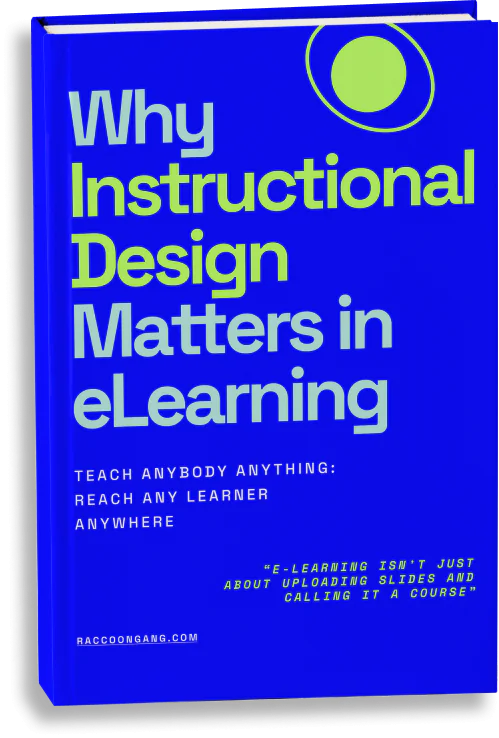Personalized tutoring has come a long way from chalkboards and one-on-one sessions in quiet classrooms. Its roots can be traced back to the early experiments in computer-assisted learning, like PLATO in the 1960s, which delivered tailored lessons through bulky terminals. By the 1980s, early e-learning platforms were tracking student records and delivering courses, but they worked in isolation.
Fast-forward to today, and personalized tutoring and LMS platforms now work hand in hand. Together, they form powerful ecosystems that deliver content, track progress, and adapt to each learner’s pace. With AI built into the mix, these platforms can recommend resources, adjust difficulty, and create a learning experience that feels like it was designed just for you.
Modern LMS capabilities now cover:
-
Content management – Create, store, and share resources in multiple formats.
-
Flexible delivery – Support different learning styles with varied formats.
-
Assessment tools – Track progress through quizzes, exams, and assignments.
-
Collaboration spaces – Enable discussions, group projects, and real-time chat.
This evolution—from isolated course systems to adaptive, personalized learning environments—shows not just how far technology has come, but how much it can still change the way we teach and learn.
The Rise of Personalized Tutoring
Even in the age of sophisticated Learning Management Systems, the role of a personalized tutor remains invaluable. Educational technology, while powerful, can’t replace the human connection and personalized guidance that a skilled tutor offers.
Imagine yourself adrift in a vast ocean of information – that’s what students can feel like in today’s online education. Personalized tutors act as skilled guides, helping students navigate this ocean effectively.
They provide one-on-one support, tailoring their approach to each student’s needs, strengths, and weaknesses. This personalized approach empowers students to:
- Grasp complex concepts more effectively. Tutors can break difficult concepts into manageable pieces and provide real-time explanations tailored to the student’s learning style.
- Develop critical thinking and problem-solving skills. Through personalized coaching, tutors can help students develop a deeper understanding of the subject matter and guide them in applying their knowledge to solve problems independently.
- Gain confidence in their academic abilities. Personalized feedback and encouragement from a tutor can boost a student’s confidence and motivation, leading to improved academic performance.
- Bridge knowledge gaps and overcome learning obstacles. Tutors can identify areas where a student might be struggling and provide targeted instruction to help them overcome these challenges.
While e-learning platforms offer a wealth of information and resources, a personalized tutor can bridge the gap between content and comprehension. They provide the human touch that is essential for authentic learning and development.
Integrating LMS and Personalized Tutoring
Let’s take a look at the Open edX LMS, a leading open-source e-learning solution. Open edX offers a powerful example of how LMS and personalized tutoring can be seamlessly integrated. This platform provides educators with the tools to create high-quality online courses, complete with interactive exercises and assessments.
Here’s where personalized tutoring comes in: instructors can leverage the LMS platform to identify students who might benefit from additional support. By integrating online tutoring services with open-source LMS platforms, instructors can connect students with qualified tutors who can provide targeted guidance based on their individual needs and progress within the LMS course.
This innovative approach expands educational possibilities by:
- Blended learning experience. Merging the benefits of structured online learning with the personalized support of human tutors.
- Student engagement. Personalized tutoring can rekindle a student’s interest in the subject matter, leading to deeper engagement with the LMS course content.
- Adaptive learning. Tutors can tailor their instruction based on student data and performance within the LMS, creating a truly adaptive learning environment.
Benefits of LMS and Personalized Tutoring for the Future
Integrating LMS and personalized tutoring unlocks a treasure chest of benefits for students and course creators.
Benefits of LMS and Personalized Tutoring for Students
- Imagine Sarah: Struggling with a complex concept in her online biology course. The LMS offers helpful resources, but Sarah still needs clarification. By connecting with a tutor through the integrated platform, Sarah receives personalized guidance, allowing her to grasp the concept and move forward with confidence.
Benefits of LMS and Personalized Tutoring for Course Creators
- Professor Jones: Offering a popular online physics course. The LMS provides valuable data on student progress, but Professor Jones can’t address individual needs as effectively. By integrating online tutoring, Professor Jones can identify students who might benefit from extra support and connect them with qualified tutors. This improves student outcomes and frees up Professor Jones’ time to focus on course development.
Looking ahead, this powerful integration has the potential to:
- Revolutionize online education: Offering a more dynamic and personalized learning experience can attract more students to online learning platforms.
- Democratize access to quality education: By leveraging technology, students can connect with qualified tutors regardless of location.
Challenges and Considerations
While integrating LMS and personalized tutoring offers exciting possibilities, there are challenges to navigate:
Cost: Integrating tutoring services can add financial burdens for students and course creators. Here are some potential solutions:
- Tiered pricing models. Offer LMS subscriptions with and without integrated tutoring options, catering to different budget needs.
- Scholarship and grant programs. Explore funding opportunities to subsidize the cost of tutoring for students with financial constraints.
- Group tutoring sessions. Consider offering group tutoring options to bring down the cost per student.
Scalability: Ensuring a sufficient pool of qualified tutors to meet growing demand requires a strategic approach:
- Building a network of tutors. Partner with educational institutions and professional organizations to recruit qualified tutors across various subjects.
- Leveraging online platforms. Utilize online platforms that connect tutors with students, expanding the reach and availability of tutoring services.
- Encouraging peer-to-peer tutoring. Explore ways to incorporate peer-to-peer tutoring options within the e-learning platform, connecting advanced students with those who need additional support.
Technical Integration: Seamless integration between LMS and tutoring services requires careful planning:
- Standardized APIs. Advocate for developing and adopting standardized APIs (Application Programming Interfaces) to ensure smoother integration between different platforms.
- Collaboration between developers. Foster collaboration between LMS developers and tutoring service providers to ensure seamless data exchange and user experience.
- User-friendly interfaces. Design user-friendly interfaces within the LMS platform that make it easy for both students and tutors to access and utilize the integrated tutoring services.
By acknowledging these challenges and implementing thoughtful solutions, we can create a more integrated learning environment for all.
Conclusion
The future of education looks promising with the combined power of LMS and personalized tutoring. This approach blends the efficiency of technology with the human touch of tailored guidance. The outcome is an adaptive learning environment where every student can thrive. From the first standalone LMS platforms to today’s blended learning supported by personalized tutoring, educational technology keeps evolving—shaping learning experiences that are both practical and truly personal.







